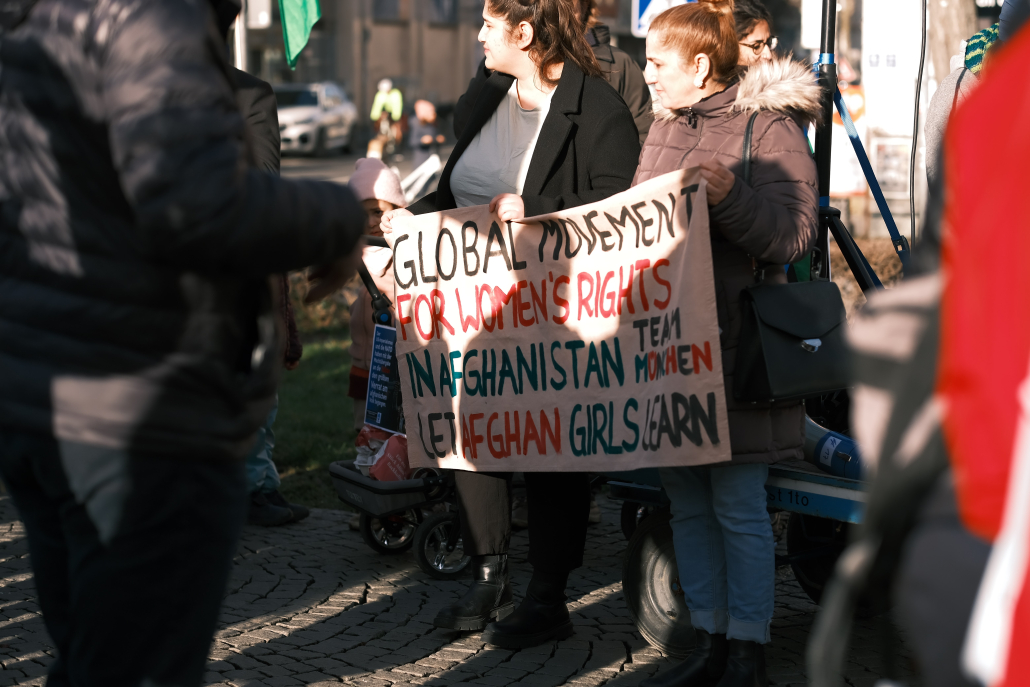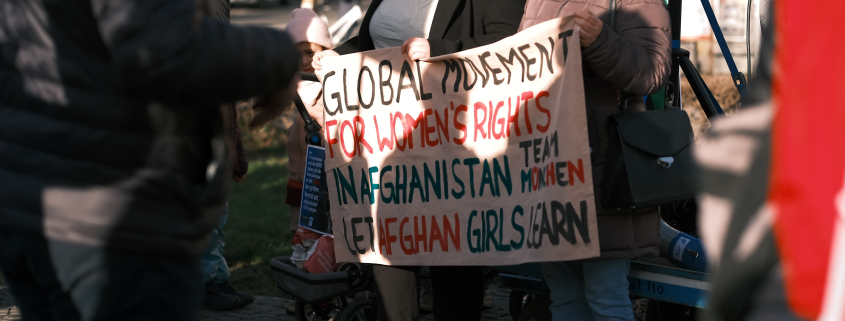Experts talk ‘gender apartheid’ in Afghanistan

A women-led panel of human rights defenders came together to discuss human rights violations women in Afghanistan face in an online webinar. The event, held on International Women’s Day, was made to be a voice for the Afghan women and raise awareness of the ongoing situation and was sponsored by the American Society of International Law.
Afghan women deal with gender apartheid in their country, a systematic policy driven by segregation and othering on the basis of gender, said Karima Bennoune, the Louis M. Simes professor of law at the University of Michigan Law School. Bennoune worked with Afghan women human rights defenders to further her study on the Taliban’s discriminatory practices. She said gender apartheid is not just discrimination, but it involves the systemic oppression of women.
“I define [gender apartheid] as a system of governance based on laws or policies,” Bennoune said. “The policy piece is very important vis-à-vis the Taliban which imposes systematic segregation of women and men, and may also systematically exclude women from public spaces and spheres.”
Hannah Garry, a clinical professor of law and founding director of the International Human Rights Clinic at the Gould School of Law, said women and girls have faced huge setbacks since the takeover of the Taliban in August 2021 and their ban on women and girls from attending universities.
“We have seen the Taliban return to its policies and practices of the 1990s in a systematic erasing, othering and removing of women and girls from all public spaces,” Garry said.
Since the 1990s, several experts have described the Taliban’s rule as apartheid. However, the international community has yet to adopt the gender apartheid approach, which would be more effective in countering the violations against women in Afghanistan, Bennoune said.
In the past 18 months, the Taliban has issued 100 decrees limiting women’s education and banning them from voting, going to parks and even seeking a medical doctor in many instances.
“They are doing everything to put us in the homes and turning Afghanistan into a living concentration camp for many of its citizens,” said Horia Mosadiq, director of the Safety and Risk Mitigation Organization.
Mosadiq also called for the support of civil society groups and women’s groups within Afghanistan. There were 58 demonstrations and protests in Afghanistan in 2022, resulting in over 60 arrests, detentions, assassinations, attacks and rapes to protestors.
“These are not simply numbers,” Mosadiq said. “These are women who are putting their lives on the line and they are going to the streets and trying to scream their plight to the world. We have to listen.”
The Taliban announced a ban on women working in nongovernmental organizations and international nongovernmental organizations Dec. 24. More than 80,000 Afghan women lost their jobs and over 3 million people face an economic crisis and starvation as a result.
The goal of these human rights defenders is to encourage countries, world leaders and UN officials to acknowledge gender apartheid as its own label. The UN Human Rights Council has already filed a report addressing the situation in Afghanistan as gender apartheid. Journalists and media sources are also beginning to use the term.
“The idea is for it to be labeled and framed as what it is,” Garry said. “The whole campaign is really to galvanize action by states and the international community to ostracize and sanction, and to put so much pressure on the Taliban that they reverse their policies.”
Mosadiq also talked about the importance of international sisterhood and the creation of worldwide solidarity. When women were banned from attending universities, male students and teachers opted out. They walked out of classrooms and said they would not come to university without their fellow female students.
Bennoune also spoke about the importance of regional alliances as well as cooperation on the international level.
“This is not a situation that Afghans created alone and they now ask us to help solve,” Bennoune said. “This is a situation that was created transnationally and requires a transnational solution … and consolidated action by the international community.”
Garry commended the women activists for their bravery in the face of the Taliban’s policies.
“It’s really important for us to hear from and be led by the women who are so courageously speaking about this,” Garry said.

